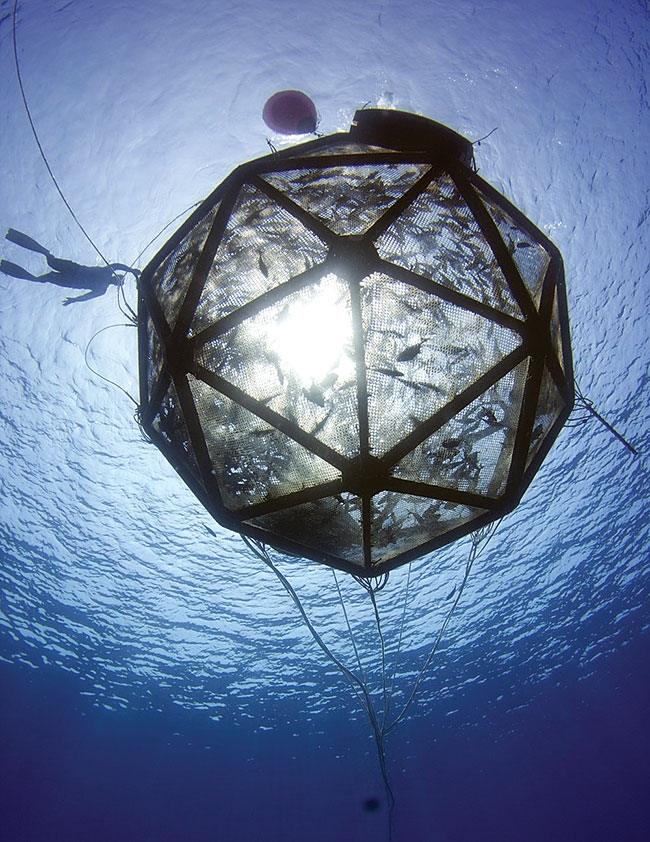
Offshore aquaculture needs policy support
July 17, 2019
By Matt Jones
 The potential of offshore aquaculture to sustainably produce finfish A group is spearheading coalition building with NGOs to advance the nascent offshore aquaculture sector.
The potential of offshore aquaculture to sustainably produce finfish A group is spearheading coalition building with NGOs to advance the nascent offshore aquaculture sector.A group is spearheading coalition building with NGOs to advance the nascent offshore aquaculture sector.
The science that supports offshore aquaculture as a promising option for expanded sustainable seafood production in the United States is available, but lack of policy support is holding up advancement, says Neil Sims, president of the Ocean Stewards Institute (OSI).
“We should be growing seafood consumption because if we’re going to feed nine billion people with hamburgers the way that Americans eat beef, we’re going to end up with soil that looks more like Mars with an atmosphere that looks more like Venus,” Sims told delegates at Aquaculture America 2019 conference in New Orleans.
Sims noted that many NGOs, including the World Wildlife Fund and the Nature Conservancy, have been supportive of the idea of offshore aquaculture, and even some who had been against aquaculture in the 90s and 2000s have been swayed by the science. He called on them to partner with the industry in advocating for supportive offshore policies by partnering in an offshore aquaculture advocacy alliance, which OSI is spearheading.
And, if they still have concerns about an offshore industry, “work with industry to address those concerns,” he said. “If you acknowledge the science, then what else do you want to see? Are there other constraints? Are there other improvements that you would like to see? What else do you need to be convinced that offshore aquaculture really is something that should be scaled and should be supported?”
Sims would like the alliance to promote recognition that consumer health would be greatly improved with increased seafood consumption, and, since global wild fisheries are over exploited, properly sited and managed offshore aquaculture is one of the few effective means of achieving that. The most pressing concerns about the industry have been addressed by the United States’ robust regulatory system, and by industry innovations, such as the development of new feeds to reduce fishmeal usage.
Sims, co-founder and chief scientific officer of The Kampachi Company, an offshore farm in the Gulf of California that grows Almaco jack, also noted that offshore aquaculture would be a very efficient use of a very small area of the ocean. “We would require less than 0.15 percent of ocean space to produce the total amount of wild capture seafood at the moment,” he said. “That’s an area about the size of Lake Michigan.”
Advertisement
- Nordic Aquafarms wins local duel over state zoning appeal
- Farmed shrimp gains traction as consumer demand rises in Canada





